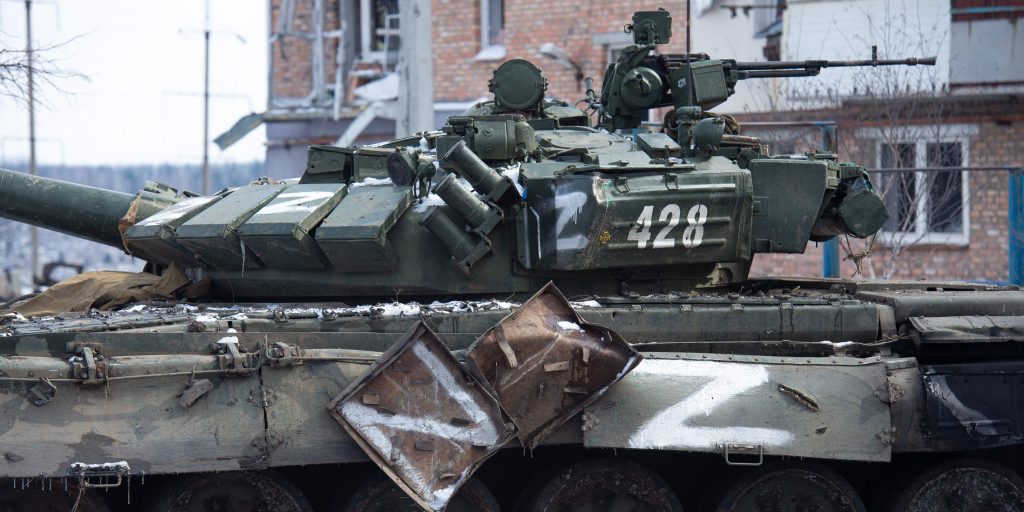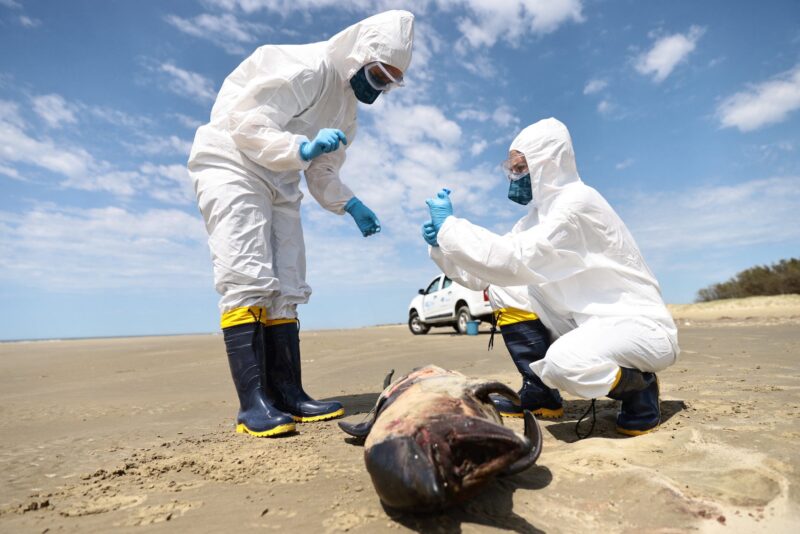- There are more than 150,000 Russian troops involved in the war with Ukraine, and an estimated 7,000 are have died within three weeks of fighting.
- Experts contribute the high casualty rate to a poorly trained Russian army.
- The immense casualties are unsustainable for the Russian army.
In three weeks of fighting in Ukraine, Russia has lost an estimated 7,000 troops, according to U.S. intelligence. That's more than the number of American troops lost in either the Afghanistan or Iraq war.
Experts say this rate of casualties is unsustainable for the Russian army and is terrible for morale on the battlefield and at home. There are more than 150,000 total Russian troops involved in the war with Ukraine, and an estimated 14,000 to 21,000 are injured, a huge toll that is contributing to the stalemate developing as Ukrainian fighters halt the Russian advance.
"You have to keep in mind this is not the Soviet Army of World War II that marched to victory over the bodies of its dead," said Mark Cancian, a retired Marine colonel and senior advisor with the Center for Strategic and International Studies. "This is a much smaller army, mostly volunteers. It's much more sensitive to casualties."
"Now they're bringing in new units and they'll bring in reinforcements, so that will mitigate some of the impact," Cancian said. "But if they keep having casualties at this rate, I don't think they can go much beyond another, I'm going to say, three weeks."
For Jeffrey Edmonds, a former US Army tanker and CIA military analyst, the US intelligence estimate of 7,000 losses seems too high. But he said even more conservative guesses – like 4,000 or 5,000 – remain staggering.
Edmonds contributes the high casualty rate to a poorly trained Russian army, many of whom were not aware they would be in active combat. He said the army has carried out poor operational and tactical maneuvers, for example, believing that they could easily drive into Kyiv and take the city.
Another reason for these extreme casualties, Edmonds said, is that the Ukrainian army has put up a stronger resistance than anyone anticipated. CIA Director Bill Burns has said that Putin believed he would be able to take Kyiv in two days, while US intelligence also estimated the capitol would fall shortly after the invasion — Ukraine still holds it thanks to heavy fighting on the approaches into the city.
Edmonds emphasized the way morale is brought down significantly by these overwhelming losses, affecting the performance of other troops.
"I've seen reports about units being destroyed and things of that nature," Edmonds said of the Russian army. "Typically, we think in the military that if you lose a third of your unit, then you're combat ineffective, because usually, psychologically, one in three dying or being taken out of the fight, your unit typically can't function well after that."
The U.S. could technically sustain Russia's current casualty rate, according to Cancian, because of the sheer size of its military, but losses of this scale so quickly would likely trigger a big opposition back home.
"The question for the United States would be the political viability," Cancian said. "What's the politics of these casualties? What's the willingness of the population to accept them?"
Despite media censorship in Russia and Putin's false narrative that the war in Ukraine is not a war but a "special operation," these casualties will make the reality hard to hide.
"Over time, I think the population is going to understand the magnitude of this special operation," Edmonds said. "Special operations don't swallow thousands of soldiers."










